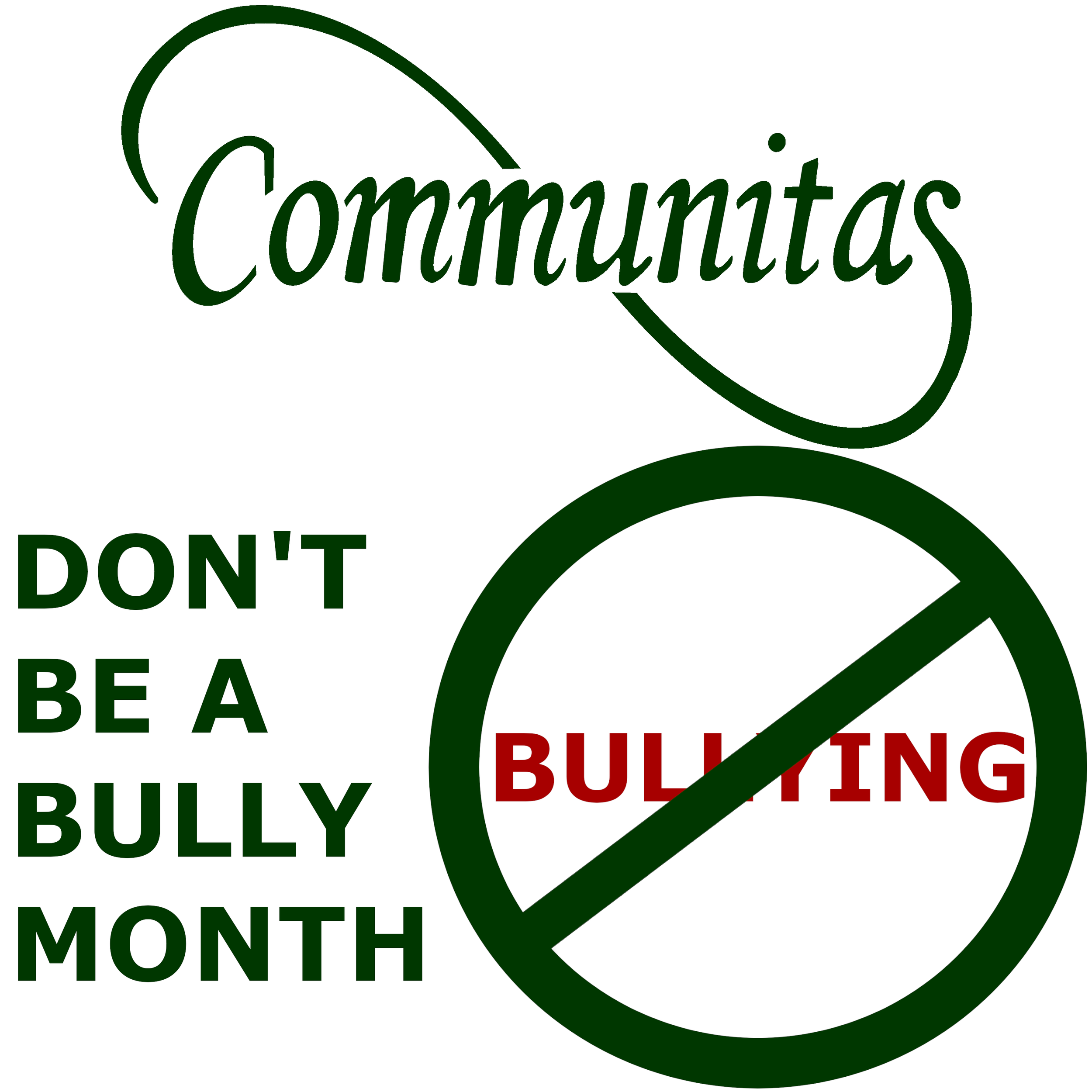August is National “Don’t Be A Bully” Month
Communitas is a nonprofit that provides Direct Support Professional assistance in Poulsbo, Silverdale, Bremerton, and Port Orchard for adults with intellectual/developmental disabilities.
Relatively soon, kids will start going back to school. Children have lots of different things to worry about, but bullying should not be one of them. A sad fact is that suicide is a leading cause of death in the United States.
LGBTQ youth are placed at higher risk because of how they are mistreated and stigmatized in society; LGBTQ youth are more than four times as likely to attempt suicide than their peers. It is estimated that more than 1.8 million LGBTQ youth between the ages 13-24 seriously consider suicide each year in the U.S., and at least one attempts suicide every 45 seconds.
For people with any disability, it was found they are twice as likely to report suicide ideation, suicide planning without attempt, and suicide attempt compared with people without disabilities. Among the disability categories, those with a cognitive limitation or complex activity limitation had the highest rates of suicide behavior.
Something that is important to always remember: even if it seems your kids are not paying attention, kids are watching how adults manage stress and conflict, as well as how they talk about and treat their friends, colleagues, and families. Make sure to always model best behaviors by treating others with kindness and respect. Kids do not naturally become bullies; this is a behavior that is learned, usually from their own home.
How you can help:
Be open to talking about mental health with your children; it is just as important as talking openly about physical health. Our brains are organs, just like our heart, lungs, and every other part of the body. Something simple to ask is “Are you okay?” and if they are not okay, asking them what is making them sad. Something that can be difficult to ask your child is whether things have gotten so bad, if they’ve thought about not wanting to live. Something that is important is keeping the conversation going, saying “Tell me more.” even if the conversation might be difficult. Do not judge them, just get them to tell you as much as they can.
If you or someone you know has suicidal thoughts, please contact the National Suicide Prevention Lifeline at 1-800-273-8255 or by calling 988 that will automatically route callers to the National Suicide Prevention Lifeline.
What to do if you suspect your child is a bully / have been told your child IS bullying others:
1) Take it seriously. Speak with your child’s doctor/school for assistance in addressing the bullying behavior your child is exhibiting.
2) Talk to your child to find out why they are bullying. Usually children bully when they are feeling sad, angry, lonely, insecure, etc.
3) Teach empathy at home, not just while they are at school.
4) Talk with your child about how it feels to be bullied.
5) Ask your child’s teacher/school counselor if there are any problems at school, such as struggling with specific subject matters or difficulties with making friends. Ask them for advice on how you and your child can work through the problems.
6) Evaluate whether someone at home is bullying your own child. Oftentimes kids who bully are bullied by a parent, family member, or another adult.
For more information, please visit:
https://www.stopbullying.gov/prevention/how-to-prevent-bullying
https://www.thetrevorproject.org/get-help/
https://www.nimh.nih.gov/health/statistics/suicide
#hiring #nowhiring #hiringnow #kitsapcounty #kitsap #hiringkitsap #kitsapjobs #kitsapcounty #kitsappeninsula #DSP #dsp #directsupportprofessional #directsupportprofessionals

